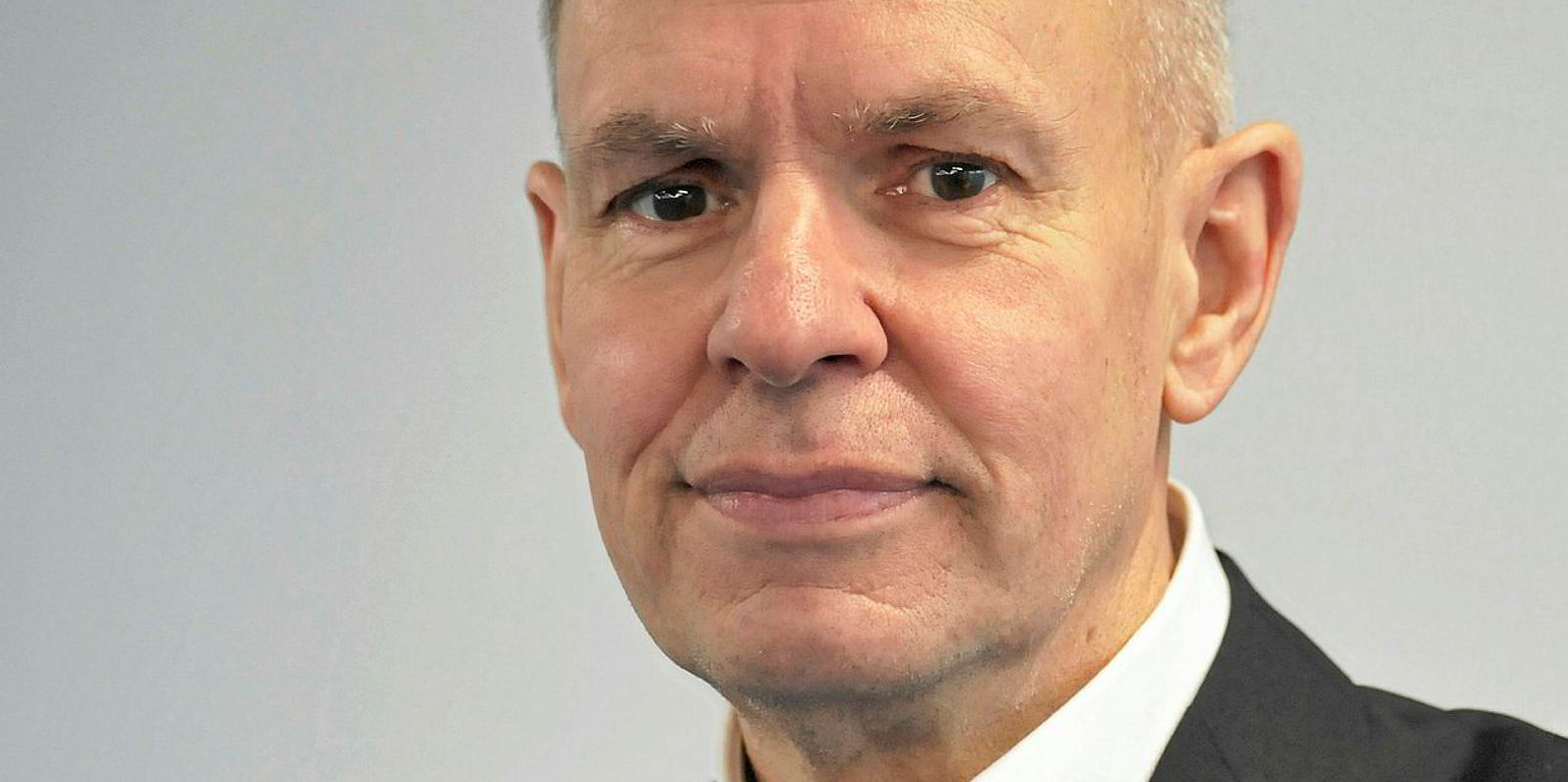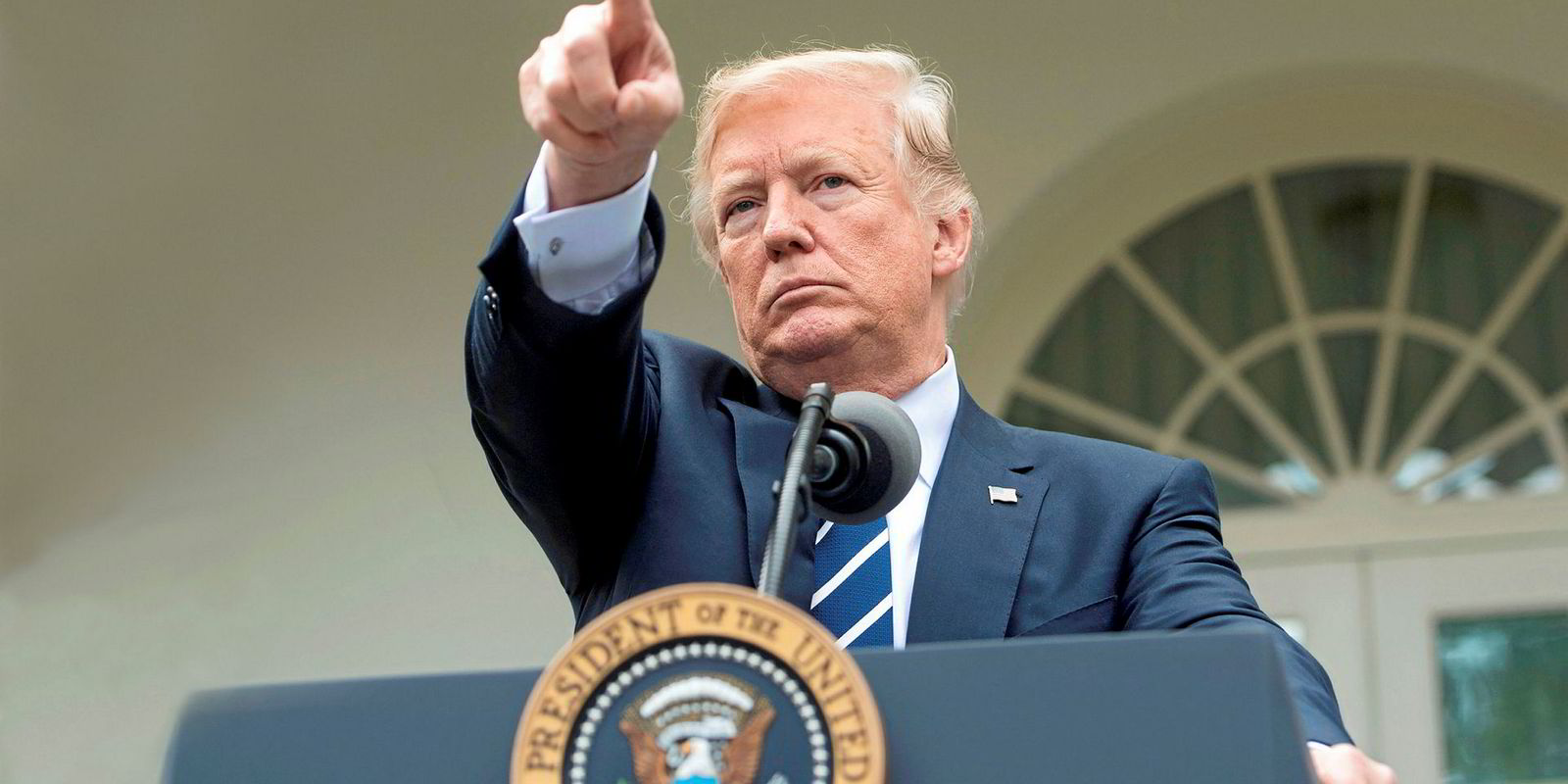In Los Angeles, the busiest container port in North America is busier than ever, despite being at the centre of a trade war. Donald Trump announced this week that tariffs will be imposed on an additional $200bn-worth of goods from China.
Over and beyond the sectional interests of the Port of Los Angeles or the White House are warnings of a global financial crisis.
Economists reviewing the 10th anniversary of the Lehman Brothers' collapse see eerie similarities between then and now.
But for all that, stock markets and trade volumes are booming, with Los Angeles and its sister port Long Beach heading for their busiest years ever. Transpacific freight rates have soared.
“The cargo is flying at us now,” Gene Seroka, executive director of the Port of Los Angeles, told CNBC.
All this would seem to back up Trump’s optimism that he is winning his trade war, with “billions of dollars and jobs flowing into our country”, as he claimed on Twitter.

But the picture is not quite as it seems. US importers admit they brought forward Christmas stocks in the hope of beating future tariff increases.
And some economists are warning that those tariffs will soon reverse the economic boom created by Trump’s programme of increased government spending and significant tax cuts.
The wider fear is that the US trade war with China — and with Canada and the European Union — will eventually undermine the global economy at a time when growing protectionism will reduce the likelihood of international action of the kind that helped counter the 2008 financial crash.
The Lehman Brothers’ bankruptcy is worth remembering because it kicked the stool from under the shipping industry, which had enjoyed what some claimed was the biggest boom in its history in the run-up to the bank’s collapse.
The cargo is flying at us now
Shipping had not helped itself by massively overbuilding new capacity while taking little tonnage off the water. Boom became bust for many yards and vessel operators that were often up to their necks in debt.
So are those economists who are now predicting another economic crash playing to the gallery in the financial media, or are they right?
Gordon Brown, the British prime minister at the time of the 2008 financial crisis, thinks they are correct. He told The Guardian last week that “we are in danger of sleepwalking into a future crisis. There is going to have to be a severe awakening to the escalation of risks, but we are in a leaderless world.”
Many of the political promises to toughen the regulation of banks ended up being abandoned.
Now there are worrying signs of overexuberance, with global debt claimed to be three times the level of global GDP.
Wall Street shares continue to set records, with tech giants Apple and Amazon becoming the first companies to reach market capitalisations of $1trn each. Are these valuations sustainable or even justified? Or is this another dotcom bubble?

Attempts to finally unwind US Federal Reserve commitments to the quantitative easing of low interest rates and cheap money have helped trigger crises in Venezuela and Turkey.
There has been a major increase in the less regulated “shadow banking” sector of hedge funds, while geopolitical uncertainty prevails.
Upheavals such as Brexit, trade wars and the American move to protectionism all encourage instability.
China, which provided financial stability 10 years ago, has its own debt problems now. Inequality has soared in many developed countries, leading to anger that has fuelled populism and encouraged protectionism.
So it is fair for some economists and politicians to warn that we are in a delicate situation that must be handled carefully.
Shipping learned a tough lesson post-Lehman, and large sectors are still recovering their financial equilibrium. The industry as a whole is much more conservative than it was and in some ways is better positioned to handle any new recession.
So no one will get overexcited about booming conditions on the US West Coast. After all, this is La La Land, famous for its glittery facade.






